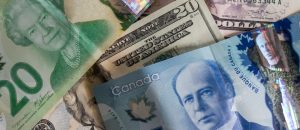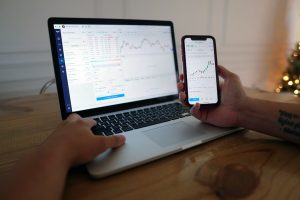Forex trading is a global decentralized market where currencies are bought, sold, and exchanged. Traders who participate in the forex market are subject to taxes on their profits. Forex trading taxes can be complex and vary depending on the country of residence, the trading strategy, and the type of trading account used. In this article, we will provide an in-depth explanation of how forex trading taxes work.
Taxation of Forex Trading in the US
In the US, the Internal Revenue Service (IRS) considers forex trading as a form of investment and therefore taxes it as such. Forex traders are required to report their profits and losses on their tax returns. The tax rate for forex trading profits is the same as the tax rate for capital gains. The tax rate on capital gains depends on the amount of time the investment was held. If the investment was held for less than a year, it is taxed at the short-term capital gains rate, which is the same as the income tax rate. If the investment was held for more than a year, it is taxed at the long-term capital gains rate, which is lower than the income tax rate.
Forex traders can deduct their trading losses from their taxable income. However, there are limits to the amount of losses that can be deducted. Traders can only deduct losses up to the amount of their gains. If a trader has more losses than gains, they can carry the excess losses over to the next tax year. The maximum amount of losses that can be carried over to the next tax year is $3,000.
Taxation of Forex Trading in the UK
In the UK, forex trading profits are subject to capital gains tax. The tax rate for capital gains depends on the total amount of capital gains made in the tax year. If the total amount of capital gains is less than the tax-free allowance, which is currently £12,300, no tax is payable. If the total amount of capital gains is above the tax-free allowance, the tax rate for basic rate taxpayers is 10%, and for higher rate taxpayers, it is 20%.
Forex traders can deduct their trading losses from their taxable income. However, there are limits to the amount of losses that can be deducted. Traders can only deduct losses up to the amount of their gains. If a trader has more losses than gains, they can carry the excess losses over to the next tax year. The maximum amount of losses that can be carried over to the next tax year is unlimited.
Taxation of Forex Trading in Australia
In Australia, forex trading profits are subject to capital gains tax. The tax rate for capital gains depends on the total amount of capital gains made in the tax year. If the total amount of capital gains is less than the tax-free allowance, which is currently AUD 18,200, no tax is payable. If the total amount of capital gains is above the tax-free allowance, the tax rate for individuals is between 0% and 45%, depending on their income level.
Forex traders can deduct their trading losses from their taxable income. However, there are limits to the amount of losses that can be deducted. Traders can only deduct losses up to the amount of their gains. If a trader has more losses than gains, they can carry the excess losses over to the next tax year. The maximum amount of losses that can be carried over to the next tax year is unlimited.
Taxation of Forex Trading in Canada
In Canada, forex trading profits are subject to capital gains tax. The tax rate for capital gains depends on the total amount of capital gains made in the tax year. If the total amount of capital gains is less than the tax-free allowance, which is currently CAD 12,298, no tax is payable. If the total amount of capital gains is above the tax-free allowance, the tax rate for individuals is between 15% and 23%, depending on their income level.
Forex traders can deduct their trading losses from their taxable income. However, there are limits to the amount of losses that can be deducted. Traders can only deduct losses up to the amount of their gains. If a trader has more losses than gains, they can carry the excess losses over to the next tax year. The maximum amount of losses that can be carried over to the next tax year is unlimited.
Conclusion
Forex trading taxes can be complex and vary depending on the country of residence, the trading strategy, and the type of trading account used. Forex traders should consult a tax professional to ensure they are complying with all applicable tax laws. Traders should also keep accurate records of their trades and profits and losses to make the tax filing process easier. Understanding forex trading taxes is an important part of being a successful forex trader. By following the tax laws, traders can avoid penalties and fines and focus on their trading strategies.






